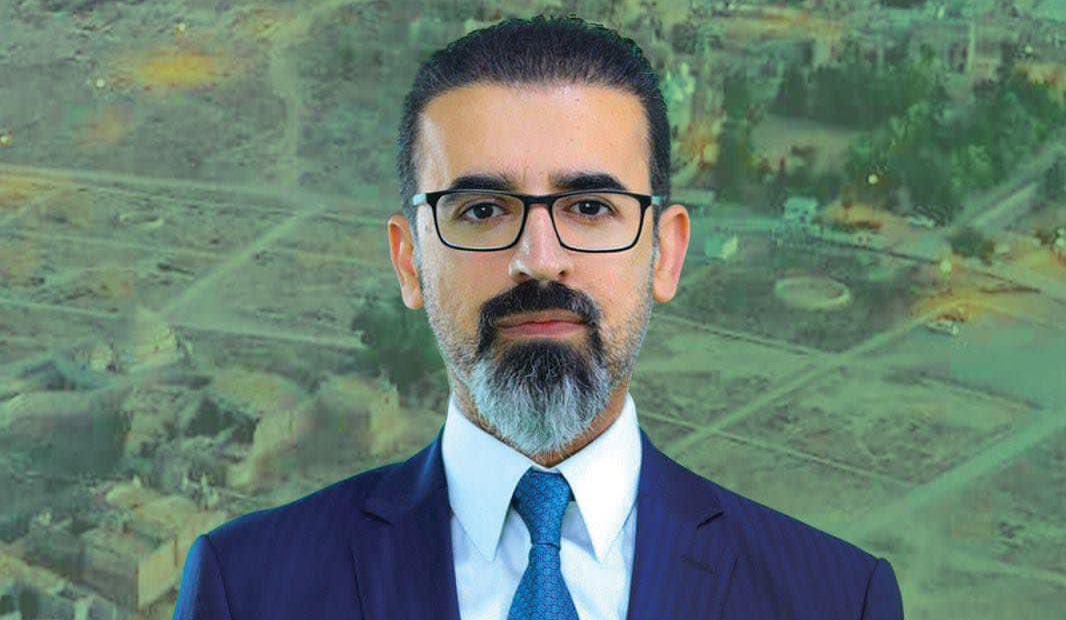In a meeting in Baghdad’s Rasheed Hotel, the Kirkuk Provincial Council voted on key administrative posts, appointing Rebwar Taha of the Patriotic Union of Kurdistan (PUK) as Kirkuk’s governor. The process, marked by tensions and disagreements, underscores the ongoing political complexities within the region.
Kirkuk Provincial Council Meeting in Baghdad
The Kirkuk Provincial Council convened this evening at the Rasheed Hotel in Baghdad, Iraq’s capital, to determine the leadership positions in Kirkuk. Rebwar Taha, the candidate from the Patriotic Union of Kurdistan (PUK), was elected as the governor of Kirkuk during this session. The time and location of this meeting were officially designated earlier today.
Ali Hamadi, the deputy governor of Kirkuk responsible for cultural affairs, issued invitations to all members of the Kirkuk Provincial Council to attend the meeting. According to Hamadi’s invitation, the meeting was scheduled for 8 p.m. at the Rasheed Hotel. The call for this session was made upon the request of both the PUK and the Babylon coalition.
In compliance with the law, this evening marked the last opportunity to elect the governor of Kirkuk. Over a month had passed since the inauguration of the new council, and the first official meeting had yet to take place. The council’s gathering at the Rasheed Hotel was anticipated to result in the election of the governor and the council’s chairperson.
Election of Key Positions in Kirkuk Council
During the meeting, a partial agreement was reached among the participating factions. Rebwar Taha was elected as the governor of Kirkuk, while Mohammed Hafiz was chosen as the chairperson of the Kirkuk Provincial Council. Ibrahim Tamim was selected as the first deputy governor. However, the second deputy governor position was reserved for the Turkmen community, and the council deputy chairperson role was also allocated to the Turkmen, leaving the Kurdistan Democratic Party (KDP) without any official positions.
This distribution of roles reflects the deep-rooted political divisions in Kirkuk, where ethnic and sectarian loyalties often dictate political alignments.
Turkmen Response to the Governor’s Appointment
The Turkmen Front issued a statement condemning the appointment of a Kurdish governor in Kirkuk. The statement declared, “Any agreement reached without our involvement to appoint a governor for Kirkuk is unacceptable.” This response highlighted the ethnic and political tensions that continue to plague Kirkuk’s governance.
The Turkmen’s opposition is significant because it underscores the fractures within Kirkuk’s diverse political landscape. The decision to move forward with the elections without Turkmen support may lead to further instability in the region.
KDP Exclusion and Legal Challenges
Meanwhile, the Kurdistan Democratic Party (KDP) expressed its dissatisfaction with the proceedings. Shokhan Hussein, a member of the KDP faction in the Kirkuk Provincial Council, in a statement to Bwar Media stated that the KDP was not informed of the evening’s meeting at the Rasheed Hotel in Baghdad. She asserted that the meeting was unlikely to be successful, given the lack of proper legal procedures.
According to Hussein, the law requires that the most senior council member be notified of any upcoming meetings, which had not occurred. She also emphasized that all factions should be formally invited to participate in such meetings, yet no official invitation had been extended to the KDP. As a result, the KDP refused to participate in the meeting, arguing that the gathering was illegal and its outcomes invalid. She also pointed out that the Turkmen faction had similarly not been invited to the meeting, further complicating the legitimacy of the proceedings.
The current developments follow nearly nine months since the Kirkuk Provincial Council elections, during which only one official council meeting has been held. Disputes among the KDP, PUK, Arab, and Turkmen factions have stalled the appointment of both the governor and the council chairperson, reflecting the ongoing challenges of governance in the region.
Who is Rebwar Taha, the newly elected Governor of Kirkuk?
Rebwar Taha Mustafa Ahmed was born in 1982 in Kirkuk. He completed his primary, secondary, and high school education in Kirkuk. He holds a Bachelor’s degree in English Language Education and another in Law, as well as a diploma in Legal Administration from the Technical Institute of Kirkuk.
Following the 2003 Iraq War, Taha worked in the field of security and counter-terrorism until 2014. That year, he was elected to the Iraqi Parliament for the first time and served on the Integrity Committee.
Rebwar Taha played a significant role in protecting the lives and properties of the Kurdish people in Kirkuk during the events following the 2017 independence referendum and the October 16th incidents. In 2018, he became the head of the Patriotic Union of Kurdistan (PUK) list and was re-elected to the Iraqi Parliament, where he served as the Deputy Chairman of the Oil and Energy Committee.
He has also held the position of Deputy Secretary of the Parliament’s internal administrative affairs and has been a staunch advocate for the rights and interests of the Kurdish people in Kirkuk during his third and fourth terms in the Iraqi Parliament.
Taha has been elected as a member of the PUK Leadership Council during its fourth and fifth congresses. He has participated in numerous political meetings, conferences, and parliamentary workshops abroad.
In 2023, as the head of the Kirkuk Unity and Will Alliance, Taha participated in the provincial elections and was elected as a member of the Kirkuk Provincial Council. He is proficient in Kurdish, Arabic, and English.


